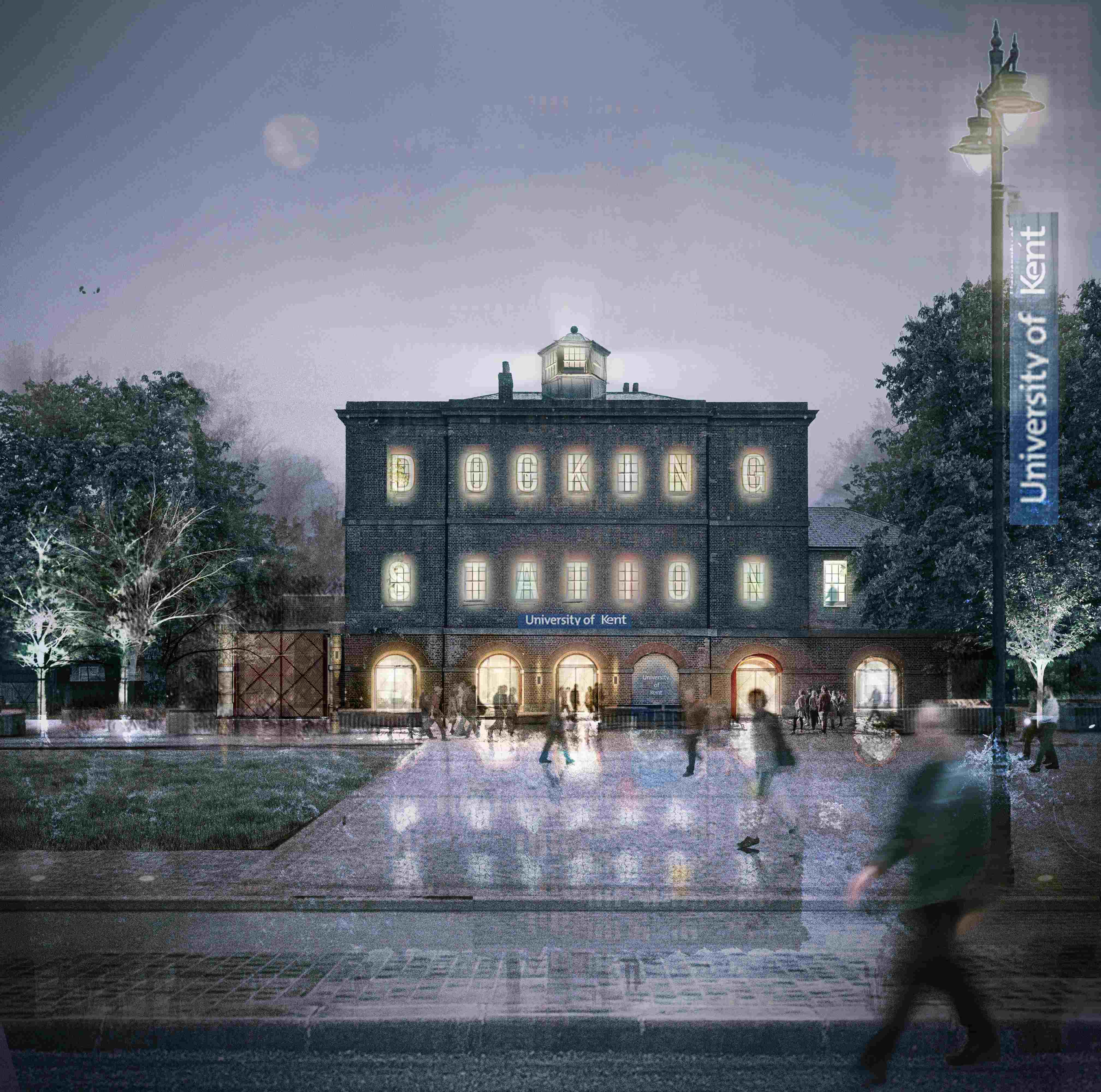Docking Station, the University’s ground-breaking hub for digital creative industries, has received £300,000 from the Colyer-Fergusson Charitable Trust to help provide new skills and access to digital creative careers for young people in Medway.
This funding will give young people access to state-of-the-art digital technology, through training, workshops and activities delivered through Docking Station’s pilot outreach programme.
The project brings together a network of organisations already embedded in local communities, including Medway Learning & Skills Hub, Medway Libraries, Brook Theatre and Electric Medway, providing digital technologies and training to ensure the project reaches a wide and diverse local audience. Embedding VR as a tool at the Medway Learning & Skills Hub and Medway Libraries will increase engagement and understanding by enabling immersive and interactive learning experiences, enriching existing educational provision including basic skills courses.
The grant from Colyer-Fergusson Charitable Trust will allow people in Medway to access immersive technologies including Virtual Reality, Augmented Reality and Mixed Reality. The programme will engage young people to help them to develop new digital skills alongside creative thinking and storytelling. It will also support local creatives and creative businesses with opportunities to upskill and diversify using a range of creative technologies and address the digital skills gap, develop talent, and provide clear pathways into the creative industries.
Docking Station is a new creative production, education and community hub in Medway, situated on the site of the former Police Section House at Chatham’s Historic Dockyard. It will place cultural and creative industries at the heart of Medway’s regeneration plans and its facilities will harness the power of immersive digital technology to open up new possibilities for young people and the communities of Kent and Medway.
Construction is planned to start in autumn 2024 and be completed in 2026 but work within the community is already well underway.
Professor Shane Weller, the University’s Deputy Vice-Chancellor for Research and Innovation, said: ‘I would like to thank the Colyer-Fergusson Charitable Trust for its generous donation and for its support of this very exciting project – one that will benefit a diverse range of people and industries across Medway, providing them with access to new and emerging technologies, as well as the opportunity to participate in and learn from cutting-edge creative projects.
‘Docking Station is an important new development for the University. It reflects our commitment to providing new education and training opportunities, supporting local businesses and contributing to the regeneration of our region.’
Daniel Ratcliff, Head of Skills, Employment & Adult Education at Medway Council, added: ‘Medway Adult Education is firmly of the view that the Docking Station equipment will enable additional support to many of our learners and support their understanding and utilisation of the virtual environment.
‘As VR becomes a greater presence impacting more aspects of daily life; having access to high quality VR technology will allow tutors to explore and exploit different ways of teaching, embedding virtual reality into the wider curriculum and allowing learners to develop ICT skills and gain an understanding of the benefits VR has to offer. A prime example would be for our learners of our creative courses, who would be able to explore in greater detail artwork from around the world in virtual galleries. VR would also be a hugely beneficial enhancement for our maths learners who would have the opportunity of being able to develop understanding around measure and shape using virtual objects. The opportunities are endless…
‘We’re looking forward to accessing the equipment to enrich our learning offer and continue to improve the skills of adults in Medway.’
Jacqueline Rae, Chief Executive Colyer-Fergusson Charitable Trust, said: ‘Colyer-Fergusson Charitable Trust is pleased to support this exciting and innovative venture which will provide young people with relevant and transferable skills in the digital domain. The Trust aims to reach young people living in the most deprived areas of Kent and Medway, facing significant socio-economic challenges. We believe that the Docking Station’s Pilot Outreach Programme will raise their aspirations and improve their options, opportunities, and life chances.’
The project is led by the University’s Institute of Cultural and Creative Industries (iCCi), in partnership with the Chatham Historic Dockyard Trust and Medway Council, and is a key part of regeneration plans for the historic waterside site. Further information is available on the project website.

